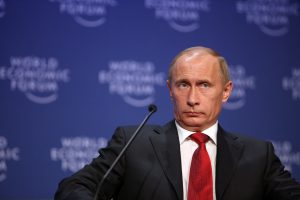In a crisis, you also have to think about tomorrow. It is difficult to do so because how can we envisage the post-crisis period when so many tragedies are still to come, in Africa, in the United States, in Great Britain, in all the countries at war, in the whole of the European Union, too – but every pandemic has an end.
Then comes the time of reconstruction, and the precedent to meditate on is that of the 1930s. The crisis of ’29 was not caused by a virus but by a stock market crash. The difference is not small but, like Wall Street’s “Black Thursday”, Covid-19 only took a few weeks to hit all the continents and plunge the world economy into a turmoil that had and will force states to adopt new approaches.
Yesterday it was the New Deal and Nazism, but today, that is to say: in four or six months’ time, what does that mean?
Well, at the end of the summer, the alternative could well be, on the one hand, a national-authoritarian system that is finding its way between India and Russia, China and Hungary and, on the other hand, liberal democracy, that of elections and alternation of power, but also those indispensable counter-powers that are a free press, an independent judiciary and freedom of analysis and opinion.
The China of Xi Jinping has, then, many assets. When its production was very temporarily slowed down by this coronavirus, the price of raw materials was affected everywhere, while in the United States and Europe many companies were paralysed because they could no longer operate without Chinese spare parts and workforce. At the same time, both sides of the Atlantic discovered that the world had become dependent on China for such essential supplies as medicines and paramedical equipment.
With its exports of masks to European countries that are so cruelly deprived of them, China can now pose as a benefactor to the world and perhaps soon, especially in Africa, as the saviour of entire countries. Because he has been able to resort to the compulsory confinement that so many other countries have now taken inspiration from, Xi Jinping can not only make people forget that it is his dictatorship that is responsible for the pandemic because it was the one that muzzled the first Chinese whistle-blowers, but also make authoritarianism seem more effective than democracy. In this crisis, China and a large part of Asia with it have taken, in a word, the place of heart of the world that the United States had occupied since its entry into the war against the Axis powers.
However appalling it may be, the Chinese regime is still not Nazism, but at this very moment, before our very eyes, like Nazism yesterday, it is nevertheless becoming the alternative to Western democracy, which has been weakened three times over by an American President who is not exactly a Roosevelt, by the European Union’s delay in asserting itself as a political power and by the confusion in so many minds between liberal democracy, growing inequality and the decline in social protection.
In comparison to China and Russia the United States look like an egalitarian society. It would be better – to put it bluntly – to have the medical protection of Americans than that of the Russians or the Chinese, but in a world in disarray, the seduction of a strong grip and nationalism are such that authoritarianism scores points.
One can find comfort in the fact that the experts and the moderate political forces – the despised “elites” – are regaining credit at the expense of the new European extreme-right and Trump, Johnson and Bolsonaro. This is true. Danger restores the lead of Reason, but what will happen when we are in the midst of an economic crisis and social violence takes the place of the “prioritisation” that the intensive care units have to resort to?
This is not a foregone conclusion. Democracy is far from having won the oncoming other war, but it does have one card to play, whose name is Biden, Joe Biden, a possible and less and less unlikely successor to Donald Trump.
Barack Obama’s former vice-president does not embody modernity. He mobilizes American youth infinitely less than Bernie Sanders does, but this figure of the Democratic Party, as popular in the working world as in the black middle class, has the immense advantage of being committed to international cooperation, to the alliance with Europe and to the defense of social justice. In the economic crisis that will be in full swing in November, he can be the man for a new New Deal, for the necessary break with the neo-liberalism of Ronald Reagan and Margaret Thatcher, and for a dialogue with Europe for a common front against authoritarianism.
The European Democrats should be obliged to lay the foundations for this front, without delay, together with Joe Biden’s teams, and to build it around two key ideas. The first is the West’s return to fiscal justice and social equity. The second is the redefinition of the Atlantic Alliance as an alliance of two equal entities, the United States and the European Union, whose political affirmation Washington must now encourage and support. We must anticipate the next battle, uniting the forces of democracy before it loses against national authoritarianism.


